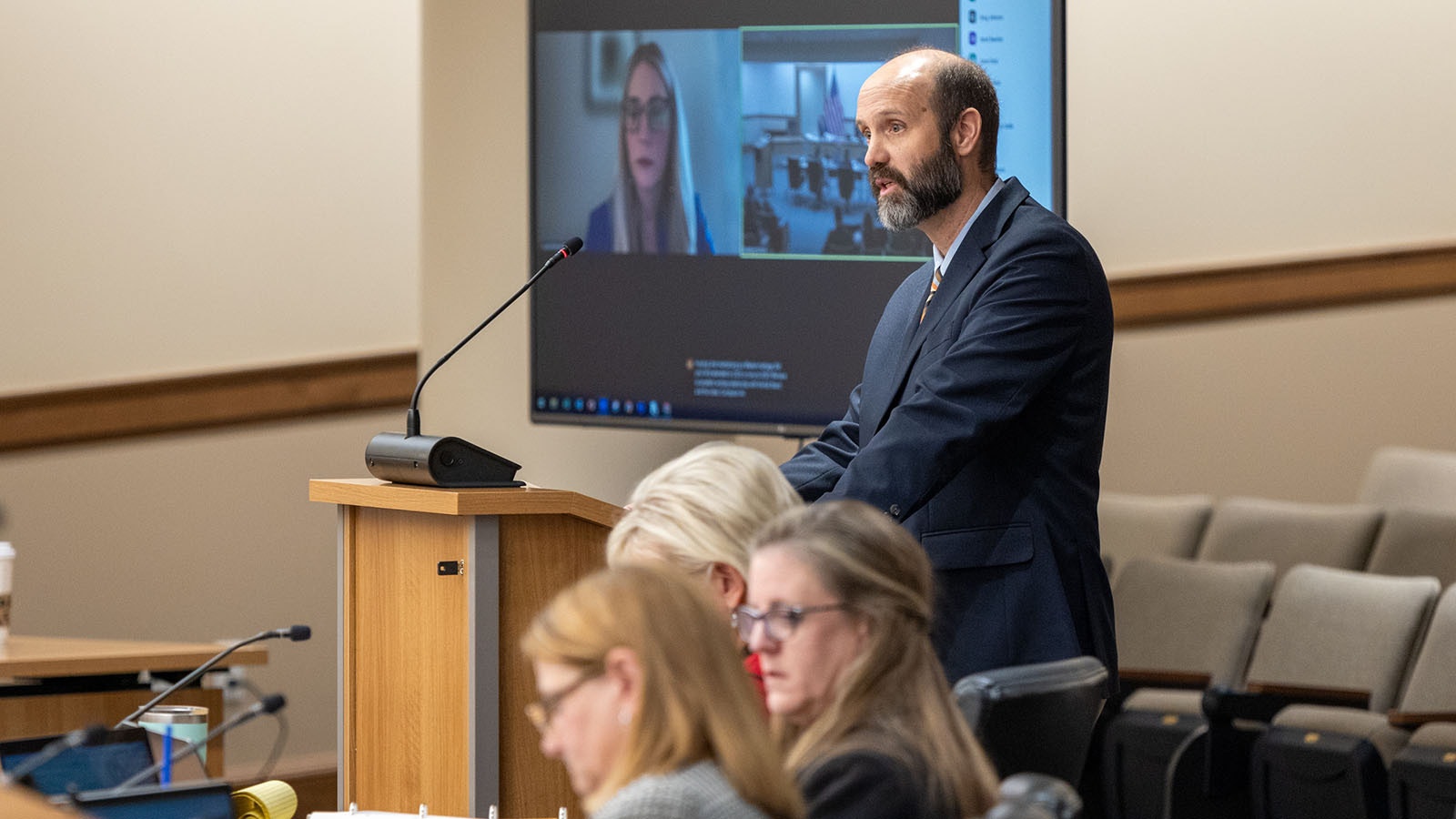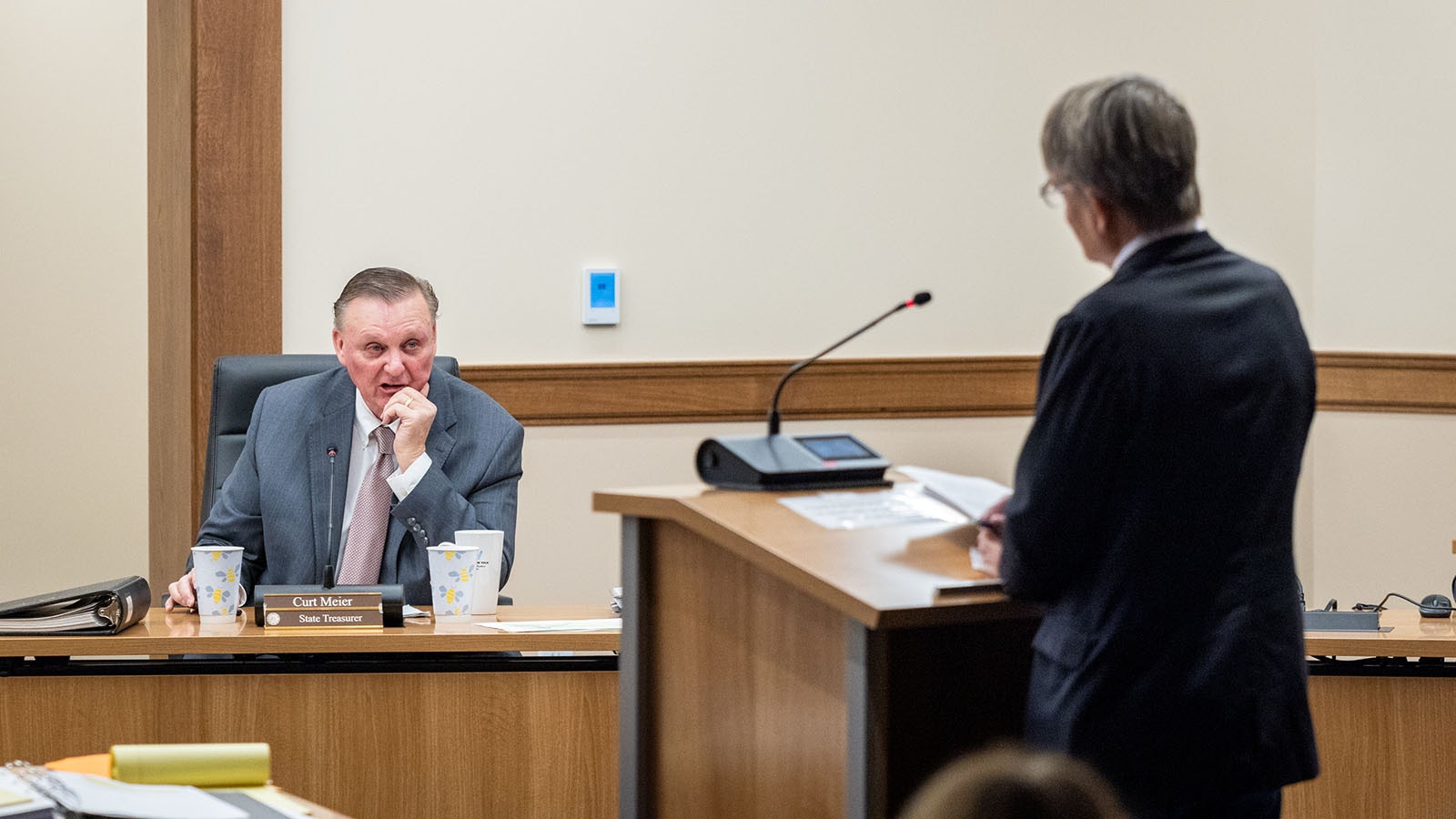CHEYENNE — A controversial plan to build affordable housing on the Teton County Fair and Rodeo grounds in Jackson was approved Thursday for $1.25 million in federal money, but not without criticism from some of the state’s top elected officials.
The project has been an emotionally charged and contentious issue in the Jackson community as residents and officials fight over the area’s need for affordable housing and fears that the rodeo grounds will be gradually sold off piecemeal.
The money was given a green light on a 3-2 vote Thursday by the State Loan and Investment Board after a roughly three-hour, and often contentious, discussion.
Gov. Mark Gordon, State Treasurer Curt Meier and State Auditor Kristi Racines approved the federal American Rescue Plan Act (ARPA) money for the 48-unit housing complex, while Secretary of State Chuck Gray and Superintendent of Public Instruction Megan Degenfelder voted against it.
Although he ultimately voted for the grant, Meier said he was “reluctant” to do so and expressed exasperation with town officials and Jackson area residents over the amount of time that was dedicated to arguing a matter he believes should be better managed on a local level.
“I just can’t believe that a community is this divided and can’t get together on something like that,” he said. “It frustrates me. We can’t have Jackson coming to this board and taking this much time again because you guys just can’t get together at the community level.
“So, fix it before the next one comes in there or I’m just going to keep voting no. I don’t want the process to get gummed up by your feuds.”
Tough, But Fair
Jackson Town Administrator Tyler Sinclair told Cowboy State Daily he thought Meier’s criticisms were “fair” and that the town could do a better job working and communicating with its constituents.
“Local issues are best handled at the local level,” he said. “But it’s difficult to find complete consensus on issues like affordable housing.”
The section of the fairgrounds the apartments will be located on is separated by a city road from the rest of the fairgrounds, but is still technically considered within the fairgrounds complex. This project is already under construction, but Sinclair said receiving the grant money is critical for opening other funds for future affordable housing projects in the community.
“It really matters as it augments dollars for other housing projects,” he said.
Fears It’s Just The Start
There is a contingency of Teton County residents who fear that the rodeo grounds will be gradually sold off piece by piece over time, citing the removal of an exhibit hall to make space for this housing as proof.
Some have claimed the project is an attack on the state’s Western heritage and rodeo overall.
The feeling is so strong for some that legislation was drafted this past session that would’ve protected the fairgrounds indefinitely in its current location under state control.
Jackson resident Rebecca Bextel has been one of the most vocal voices of this perspective.
“The town has a history for being disingenuous,” she told the commission via Zoom on Thursday. “They’ve literally done a pretty good job of saying this isn’t the fairgrounds — this is the fairgrounds.”
State Sen. Mike Gierau, D-Jackson, said these types of concerns are not valid.
“I’m not saying they’re wrong, but they're a little short on being right,” he said.

‘Powder Keg’
The apartment complex is being built on the property the fairgrounds sits on, which hosts events like the Jackson Hole Rodeo and Teton County Fair.
Gray was particularly vocal about opposing the project, grilling various local officials from Teton County about what their future intent is for the fairgrounds. At one point he referred to the situation as a “powder keg,” which Gierau called an incendiary term.
The chief point of those opposing the grant is a 2030 expiration on the lease between the town and the county for the fairgrounds. Those fearing that the fairgrounds will be moved in the future have demanded a lease extension, something Gray said should happen.
“Why wouldn’t you want to resolve this issue?” Gray questioned Sinclair. “It’s been out there and caused a lot of concern.”
At one point Gordon admonished the board for getting off topic and said that he doesn’t believe the lease and the grant are connected, a point supported by Jackson town officials.
Sinclair said the ARPA grant has no bearing on whether the housing project moves forward or the future of the rodeo or fairgrounds, and solely focuses on affordable workforce housing.
“Let me repeat, there is no threat to the Teton County Fairgrounds or the Jackson Hole Rodeo as a result of this application,” he said. “But there is a real threat to our community — our lack of workforce housing, and our ability to house our workforce.”
Housing Crunch
Affordable housing is a well-documented problem in Teton County, which has the highest-priced housing market in the country with a median home price of $5.2 million.
The community struggles with retaining middle- and low-income residents because of the relatively unattainable housing market. A 2022 housing needs assessment performed for the town showed that it needs 2,000 affordable workforce units in the next five years.
Sinclair and other officials from Jackson testified Thursday that since the lease won’t expire for another seven years, they’ve had bigger priorities to deal with. They also mentioned for the lease that involves the county, the rodeo and fair board, none of those entities have approached them about extending the lease.
“I don’t think we’re not following through,” Jackson Vice Mayor Arne Jorgensen said. “It’s local elected officials looking at bandwidth and moving everything down the road.”
Meier also criticized this argument, mentioning how the Legislature passes hundreds of bills and casts thousands of votes each year, yet the Jackson Town Council hasn’t addressed the matter.
Gray asked Jackson officials multiple times if there are any plans on the table to move the fairgrounds, to which all said no. But no one made any concrete long-term commitments past 2030. An affordable housing report performed in Jackson a few years ago did list the fairgrounds as a potential site for more affordable housing development.
So How Long Will It Be Affordable?
Gray also got into a squabble with Jackson Town Attorney Lea Colasuonno about what qualifies as affordable housing in the lease.
“How does that become operable in a contract? Why not define that?” he questioned.
Colasuonno said the lease references what is defined as affordable housing under state law.
Federal low-income tax credit law only requires low-income housing to be “rent-restricted” and occupied by income-eligible households for at least 15 years, called the “compliance period,” with an “extended use period” of at least another 15 years for a total of 30 years.
Federal grants for the project pass through the Wyoming Community Development Authority, which has additional restrictions for a subsequent 15 years, establishing two layers of affordable housing guarantee for at least 45 years.
Additionally, the lease term for the affordable housing units is 99 years, a length of time the contract says cannot be shortened and must be used for residential housing.
Gray described the contract as being “way too loose” in ensuring affordable housing for the entire 99 years.
Some from the public who testified levied criticism on the fact that Jackson is getting involved in affordable housing at all.
The town provided a ground lease plus an additional investment to the affordable housing developer, and in exchange the developer is building the affordable housing and managing it.
Rents at the complex will range from $670 to $1,900 a month. The current market rate for a studio apartment in Jackson is $2,500 a month.
Bextel said the Jackson Town Council circumvented its own zoning rules to allow the developer a 99-year lease and to build on the property. Colasuonno said this isn’t accurate as the housing project is allowable under the rules for where the housing is being built.
Gray also said he wanted the time people spoke for tracked so that an equal amount of time would be allotted for people to speak for and against granting the ARPA money, a point that was referenced multiple times throughout the meeting.
Gordon disagreed, saying the board doesn’t render decisions based on the length of time or quantity of comments from a certain position.
A total of $5 million in ARPA money was dedicated to Wyoming for unmet affordable housing needs, of which most will go unused.
Leo Wolfson can be reached at leo@cowboystatedaily.com.





